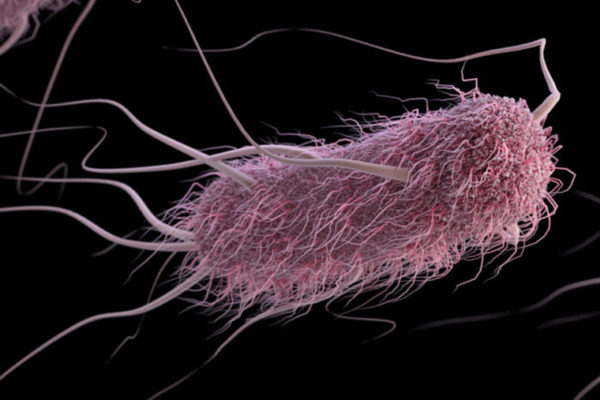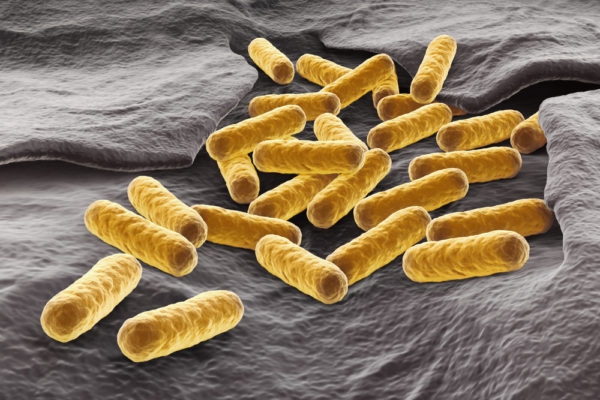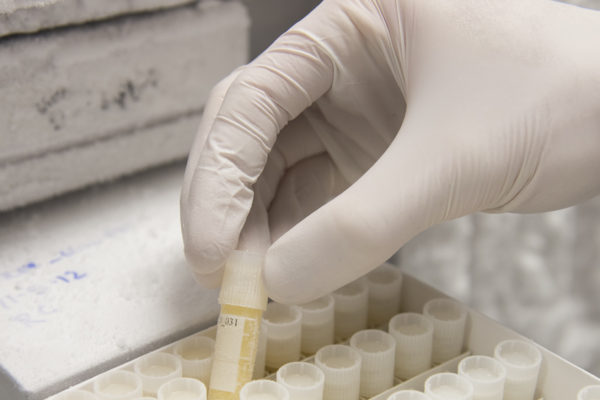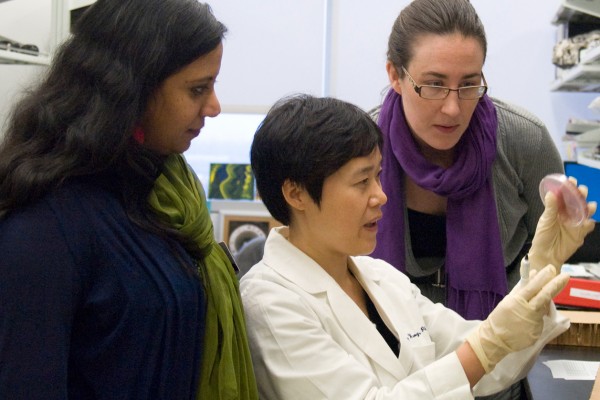Using bacteria to create a water filter that kills bacteria
Engineers have created a bacteria-filtering membrane using graphene oxide and bacterial nanocellulose. It’s highly efficient, long-lasting and environmentally friendly — and could provide clean water for those in need.
Blood type affects severity of diarrhea caused by E. coli
A new study from the School of Medicine shows that a kind of E. coli most associated with “travelers’ diarrhea” and children in underdeveloped areas of the world causes more severe disease in people with blood type A. The findings could lead to a vaccine that could potentially protect people with type A blood against the deadliest effects.
New pathways, better biofuels
New research from an engineer at Washington University in St. Louis stitches together the best bits of several different bacteria–including a virulent pathogen–to synthesize a new biofuel product.
Engineering a better biofuel
The often-maligned E. coli bacteria has powerhouse potential: in the lab, it has the ability to crank out fuels, pharmaceuticals and other useful products at a rapid rate. A team from the School of Engineering & Applied Science at Washington University in St. Louis has discovered a new way to remove a major stumbling block in the process, and boost biofuel production from E. coli.
A person’s diet, acidity of urine may affect susceptibility to UTIs
The acidity of urine — as well as the presence of small molecules related to diet — may influence how well bacteria can grow in the urinary tract, a new study shows. The research, led by Jeffrey Henderson, MD, PhD, at Washington University School of Medicine in St. Louis, may have implications for treating urinary tract infections, which are among the most common bacterial infections worldwide.
Estrogen fights urinary infection in mouse study
Estrogen levels drop dramatically in menopause, a time when the risk of urinary tract infections increases significantly. Researchers at Washington University School of Medicine in St. Louis
have found new evidence in mice that the two phenomena are connected by
more than just timing.
$5.3 million boosts research to fight urinary infections
Researchers at the School of Medicine have received a five-year, $5.3 million grant to explore
the way gender and age influence susceptibility to urinary tract
infections, one of the most common bacterial infections.
Urinary tract infections steal from hosts’ defense arsenals
Humans have known for centuries that copper is a potent weapon against infection. New research shows that the bacteria that cause serious urinary tract infections “know” this, too, and steal copper to prevent the metal from being used against them. Blocking this thievery with a drug may significantly improve patients’ chances
of fighting off infections, according to researchers.
Discovery helps mice beat urinary tract infections
Scientists at Washington University School of Medicine
in St. Louis have found new clues to why some urinary tract infections
recur persistently after multiple rounds of treatment. Their research, conducted in mice, suggests that the
bacteria that cause urinary tract infections take advantage of a
cellular waste disposal system that normally helps fight invaders.
Drug clears chronic urinary infections in mice
An experimental treatment for urinary tract infections has easily passed its first test in animals, alleviating weeks-long infections in mice in as little as six hours.
View More Stories






